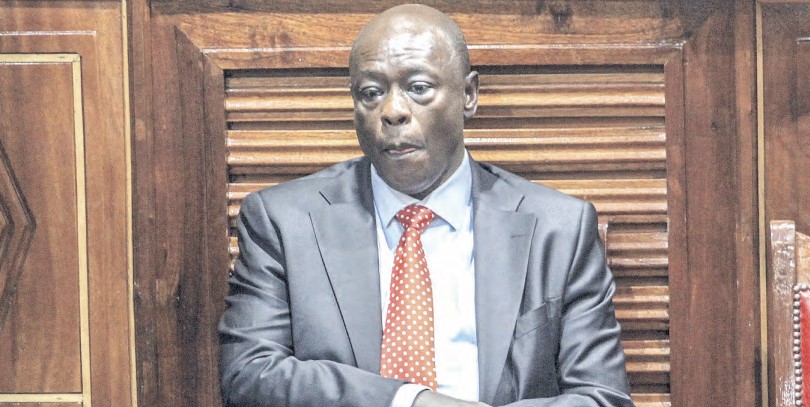GHAI: Patriotism, a national value – What does it mean?
Patriotism should not mean supporting “Our country, right or wrong”.
Peace can only prevail when leaders take deliberate measures to guard against reckless political behavior and brinkmanship.
In Summary

Audio By Vocalize

In recent times, Kenya has gone through one its tumultuous political periods since the return of multiparty democracy.
The events have pushed the political leaders to their gut reactionary tendencies.
They have engaged in primordial mobilisation activities using primitive organisational strategies.
The tribe as is always, has became their default fallback vanguard.
They have incited ethnic chivalry using inflammatory rhetoric with reckless abandon. Citizens are routinely shepherded into public gatherings to demonstrate community valour and pushed into herd mentality of turf protection.
The violent and painful divorce of President William Ruto and his estranged deputy Rigathi Gachagua is polarising the country and threatening its national fabric to the core.
The Kikuyu and Kalenjin leaders have traded political barbs wantonly and with least care for posterity.
The johnny-come-lately into government through the broad-based government, led by the ODM party, have joined in the fray and shouting their voices hoarse.
When Gachagua was jettisoned from the inner sanctum of government, his allies cried foul and resorted to tribal balkanisation of their Gema community.
They inverted the strategies used to deny Raila Odinga votes in the 2027 presidential elections.
They instead saw betrayal and declared Ruto the penultimate traitor.
No space was spared to demonstrate how from humble enclaves they shoved him to the pinnacle of national leadership.
They did not tire in reminding everyone who cared to listen about the role of Ruto in the post-election violence of 2007-8.
Further, they repeatedly showcased how they used their numerical strength to protect him from the dreaded ICC.
They forced their eminent son Uhuru Kenyatta to take him in as running mate. This ensured that the duo of Raila and Kalonzo Musyoka were run out town.
This was a surprise turn of events where contenders from outside of government beat a sitting vice president as running mate and a sitting Prime Minister.
Ever since, the presidential elections have remained controversial and deeply emotive.
All the three election results have been contested, with the 2017 being nullified by the Supreme Court under Chief Justice David Maraga. The 2022 election presented unwitting ironies and twists.
The opposition leader Raila supported Uhuru’s government through the handshake. In return Uhuru supported Raila’s presidential bid against his deputy Ruto.
The Jubilee Party leaders who rebelled against Uhuru’s choice cast their lot with Ruto and formed UDA. Ruto took Gachagua as running against all expectations.
The bet paid off asGachagua rallied the mountain region against their kingpin and voted for Ruto to a man.
The Gema community therefore felt they owned the government. Gachagua actually went ahead to declare that they were the majority shareholders by virtue of their sheer numbers.
The former Mathira MP engaged in ethnic mobilisation of his community and concentrated his efforts within the Kikuyu constituencies of central Kenya.
These activities jolted the leaders of other regions into rebellion against the government. President Ruto decided not to play ball and declared that he would never lead a jingoistic government.
Events were set in motion to remedy the escalating rebellion culminating in the impeachment of Gachagua.
He played the victimhood card deftly and rallied the Kikuyu community to ostracise Ruto. The effects of the fallout forced the President to reach out to Raila to buttress his government.
In exchange, ODM leaders were co-opted into government in strategic ministries. This only helped to further alienate the Kikuyu political elite instead of embracing national unity.
Their coalition partners comprising largely the Kalenjin community leaders had no empathy for them and lacked kind and polite messages to respond to their frustration.
The opposition in government relished the realignment and watched in glee as their hitherto tormentors suffered the ignominy of political anguish.
For the first time in Kenya’s multiparty history Raila pulled his battleground-hardened foot soldiers from the frontline. The Gema leaders also found themselves in ethnic incitement for mobilisation and containment.
In their quest they peddle falsehood and strategically suppress true information.
The old messaging of uncivilised tribes not fit to lead versus historically marginalised communities has suddenly reemerged with gusto.
The schism within the Kenya Kwanza coalition is irreparable. It continues to widen and grotesquely pose the greatest danger to national unity.
Communities are deliberately being organised to antagonise their counterparts.
It is us against them or them against us. The leaders have thrown away care out of their selfishness and desperation.
In confusion and because of limited civic awareness, the respective tribesmen are tagging along. The civil strifes of 1992 and 1998, which eventually exploded in 2007- 8, should always be a reminder to political leaders that Kenya is not an oasis of peace.
Peace can only prevail when leaders take deliberate measures to guard against reckless political behavior and brinkmanship.
It must be jealously nurtured and protected from unwarranted buccaneering by court jesters and wheeler-dealers of economic turmoil.
Those born in the period 2005-09 may not have vivid memories of the agony that ordinary citizens went through due to primitive pursuit and retention of power by the leaders then.
This generation is today aged 16-20 years and will be of voting age in 2027. They constitute the bulk of the Gen Z and may naively think that the nation is closely knit and cannot disintegrate.
The older generation of political leaders is taking advantage of the innocence and naivety of this generation to drive their evil political designs.
As
owners of technology and media,
they manipulate the feelings of these
young unassuming Kenyans to their
full advantage, steadily pushing the
country to the political brink.
Patriotism should not mean supporting “Our country, right or wrong”.